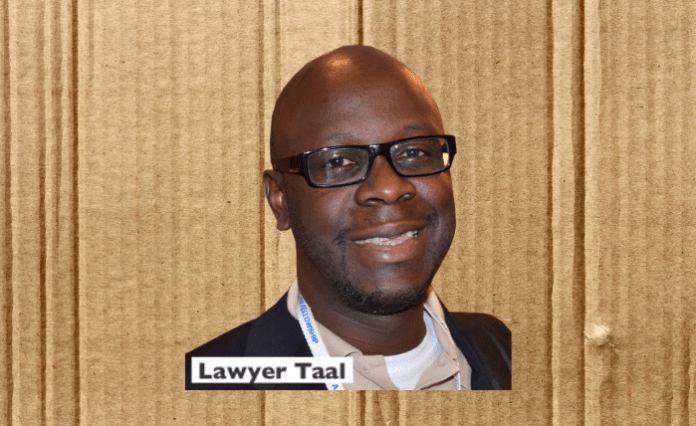Bar prexy warns laws designed for dictatorship must go

By Omar Bah
The president of the Gambia Bar Association has said the country critically needs legal reforms for the sustenance of its democracy.
“It is unfortunate that we are still governed by the same legal framework of the former regime. So, it is not only urgent but critical that we overhaul the legal regime that was created and fine-tuned to empower a dictatorship,” Salieu Taal told The Standard.
Lawyer Taal said the constitution was changed more than 50 times and the country’s Criminal Code has certain provisions that are “not consistent with International Human Rights norms”.
“So, we really need to move away from those kinds of laws to laws that would be befitting of a progressive democracy,” he stated.
When President Adama Barrow was inaugurated in 2017, it signalled a new dawn after the 22-year rule of Yahya Jammeh. The coalition that selected Mr Barrow had promised numerous legal reforms including constitutional and governance reforms but six years on, there has been little or no progress made in that regard.
Taal added: “Even the truth commission presupposes that a new constitution should have been in place before the end of the commission because there are certain constitutional changes in the proposed draft constitution that would have complemented the country’s transitional justice process in terms of its implementation.”
He added that there are some provisions in the draft constitution that incorporate international customary laws that would have made it easier to prosecute crimes committed under former president Yahya Jammeh as part of laws. “So, the whole TRRC was built on the assumption that there would be a constitution in place that is fit for purpose so obviously, that has not happened because of political reasons. We all know the process was very participatory and inclusive – the commission went round the whole country and consulted people but the draft was rejected at the National Assembly because there are people who think otherwise and they have a right to not agree with the rest of us though they are a minority but constitutional amendments require absolute majority.”
He said the minister of justice’s recent pronouncement of the government’s commitment to resurrect the draft is a welcome development.
“We are eagerly anticipating and hoping that we will learn from our experience and make sure that the constitution is passed because it is long overdue. We also have a Criminal Offences Bill that aims for total overhaul of the Criminal Procedure Code, International Crimes Bill and a few other very important legislations in parliament and hope that in the next circle we will receive some traction in that area,” Taal added.




